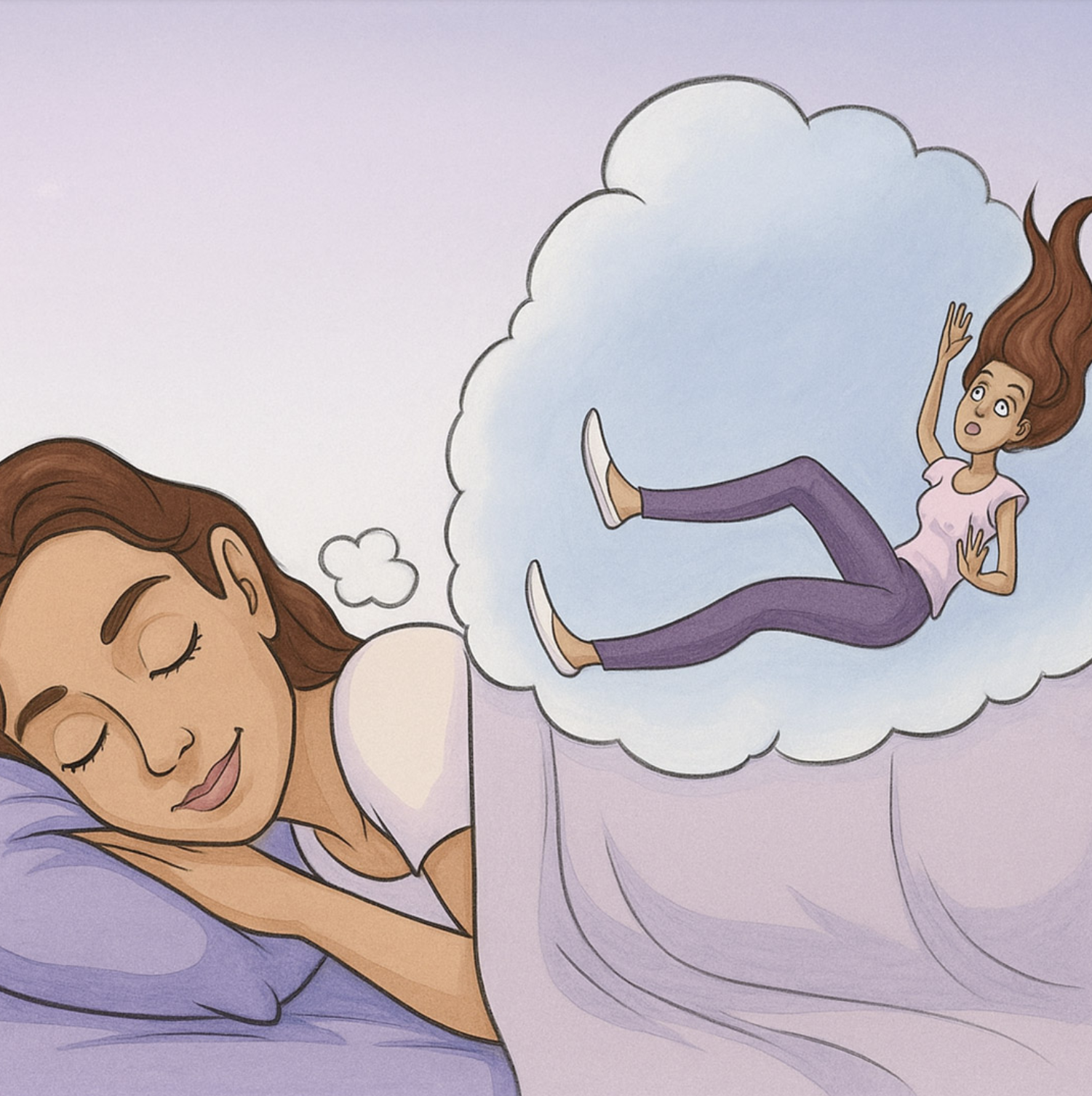
Short or irregular nights disrupt the nervous system, making falling asleep more difficult. The brain, in its rush to reach deep sleep, may miss certain essential steps, triggering this feeling of falling.
Physical activity: pay attention to the right timing!
Exercising is excellent for sleep… as long as you don’t exercise too late. Intense physical activity in the evening stimulates the body, delaying the calming needed to fall asleep peacefully.
It is recommended that you complete your exercises at least 3 to 4 hours before bedtime.
How can I reduce this feeling of falling?
Here are some simple tips to limit hypnic spasms:
- Adopt a regular sleep routine : Try to go to bed and get up at regular times.
- Avoid stimulants at the end of the day : coffee, tea and cigarettes after 4 p.m. should be avoided.
- Establish a calming ritual : Reading, meditation, or gentle stretching can help calm the mind and body.
- Take care of your environment : a quiet, dark and slightly cool bedroom encourages sleep.
- Manage your stress daily : deep breathing, journaling, or mindfulness meditation before bed.
- Stay calm : hypnic spasms are benign and do not require any concern in the majority of cases.
In summary: a normal phenomenon, rarely worrying
The sensation of falling asleep is a strange but natural aspect of our biological functioning. By understanding its causes and adapting a few lifestyle habits, it is entirely possible to limit these sudden awakenings.
So the next time you jump before diving into your dreams, remember: your brain is watching over you… even when you’re asleep.
Warning: If spasms become frequent or disrupt your sleep for a long time, do not hesitate to consult a healthcare professional.
